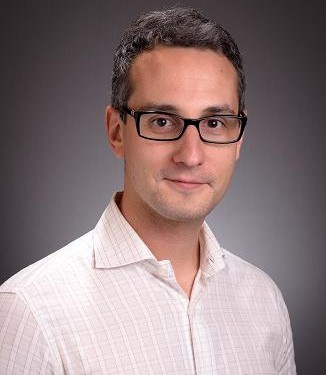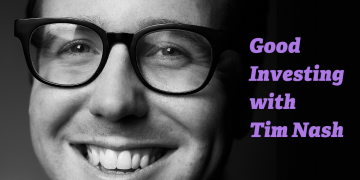Jonathan Hera. Fund Manager. Impact Investing at RBC
If you are one of those people who think that you have to follow a certain career path or think there’s only Wolves on Wall Street, then Jonathan’s story of pursuing a career in social finance is for you. Jonathan is at the leading edge of impact investing- a job that marries traditional finance with social good. We think impact investing is the future of finance and we love his career tips for finding a job in this field and advice for professionals to help affect change within big corporations.
Can you describe your job in a nutshell?
As the Fund Manager, my job is to help enable entrepreneurs to grow their businesses. This means everything from providing access to financing to strategic planning. Our $10M fund is exclusive to entrepreneurs who include a social or environmental component as part of their business.
What do you like about your job?
I get to place capital with people who are trying to do meaningful things. I just wish we had more money to invest in more companies at every stage of their growth.
How many people work on the Impact Investing team at RBC?
The Impact investing team sits under the umbrella of our Corporate Sustainability Department. The head of the Social Finance Initiative oversees the strategic direction of the overall initiative, I manage the Generator Fund, and a third person manages our partnerships and research.
How do you define Social Finance?
Investing with positive intent. Trying to do something good with the money like investing in clean water or clean energy. The other differentiator from traditional financing is the need to monitor and evaluate the impact to see that the money has done something positive to the world around you.
Can you briefly describe your career path?
I graduated with from McGill with a BA in PoliSci. Early in my career I gained a range of experience in the nonprofit sector. Working in Poland, Mexico and Canada with beneficiaries such as farmers and migrant workers provided me with an understanding from the beneficiaries’ perspective. I realized I wanted to get more involved on the investing side but found I was lacking the technical skills required (eg. venture capital and private equity) so I went back to school and got my IMBA at Schulich.
After I graduated, I worked as a microfinance consultant for the Consultative Group to Assist the Poor, housed at the World Bank, and at Sarona Asset Management, a boutique private equity impact investment asset manager. Before RBC, I completed a three-month contract with MaRS Centre for Impact Investing, where I met people in every stage of the industry, which led to my current position now.
What’s on your resume that people wouldn’t expect to see?
I worked in a cookie factory for a number of years, DJ’d for a long time, or it could be that I speak broken Spanish, German, Italian, and Polish.
What advice would you give to professionals interested in getting a Social Finance job?
Three things:
1. Develop your technical skills in a specific area. In most cases it’s finance, but it doesn’t have to be. You could be a programmer building something with social impact or a political economist. A fundamental component of impact investing is measuring the impact, so having a statistics or a monitoring and evaluation background is an asset.
2. Pursue opportunities that build complementary skills, seek out internships, fellowships and jobs in development. Learn another language to work on the ground abroad.
3. Make sure you network. Making connections with people in the industry is key as most teams are small and who gets the job is often based on who’s known in the space. Beyond having the hard and soft skills, teams are interested in personal fit, so having a warm lead is better than applying cold.
What advice would you give other professionals working in big companies to help affect change within the organization?
It’s important to build, develop and have internal champions across the organization, all the way to the CEO, to help promote the cause you are working on. At RBC, it’s great because the CEO is a real Champion of our program.
What’s one trend you are seeing that will impact the industry?
There’s a greater volume of activity happening, from more investors to more intermediaries brokering connections. The industry is growing up, we’re starting to move away from impact investing 1.0 and that’s really exciting.
**Update: Jonathan Hera is now a Senior Portfolio Manager at Grand Challenges Canada




